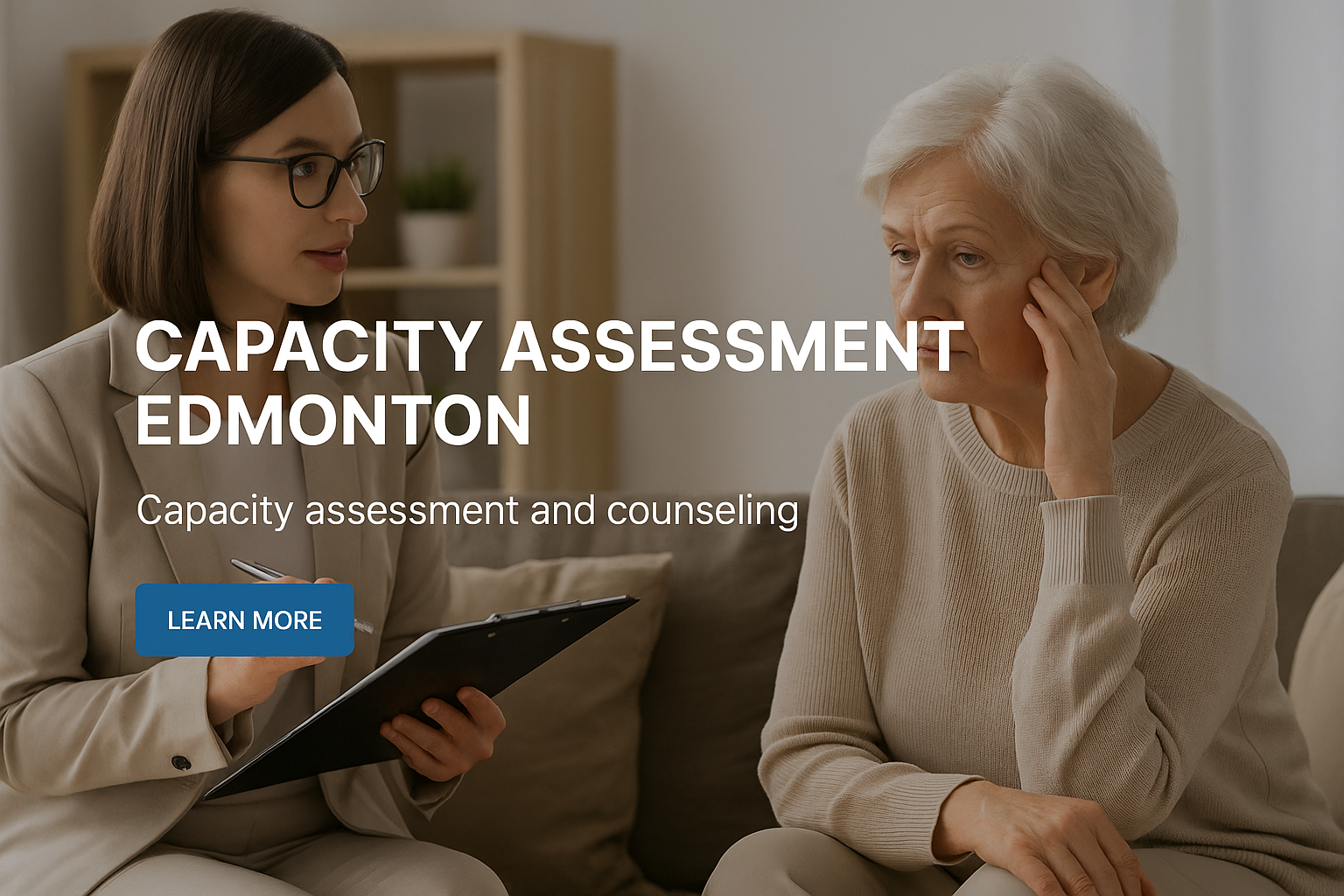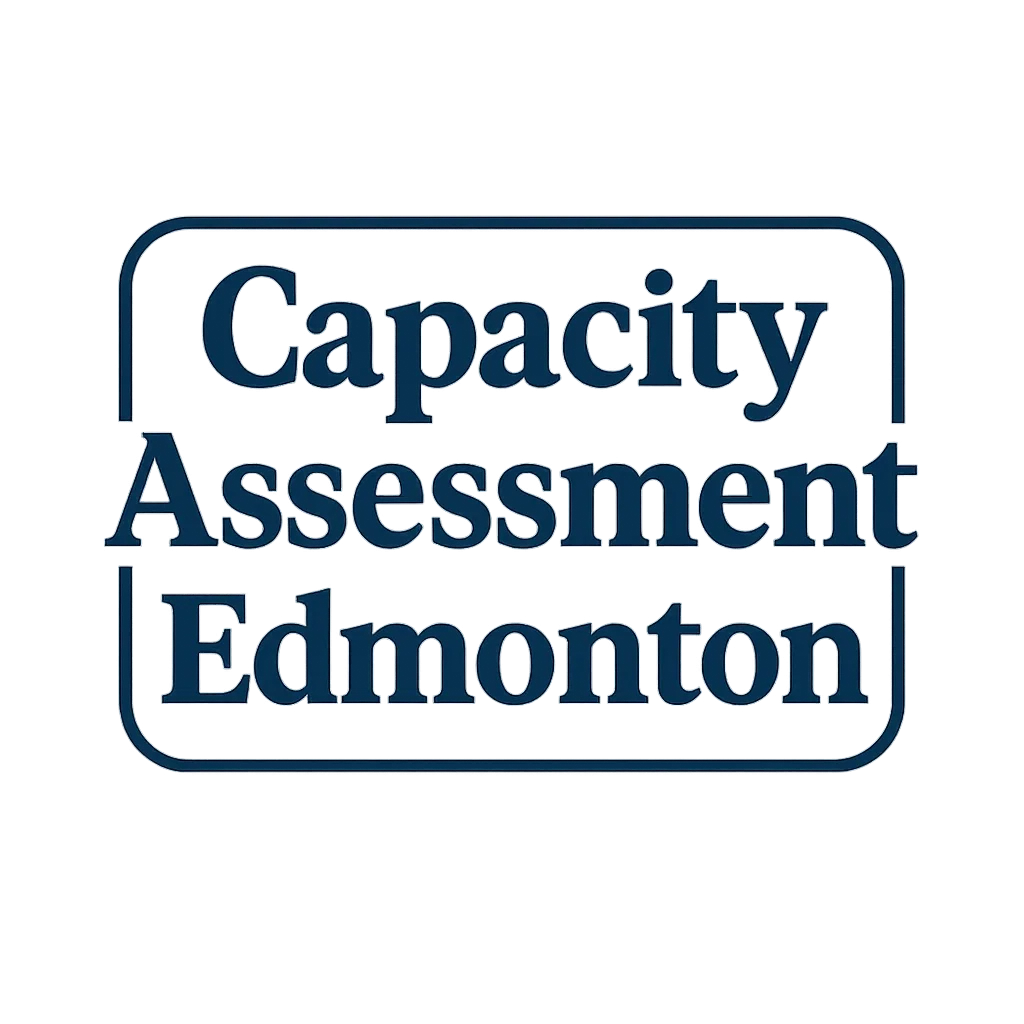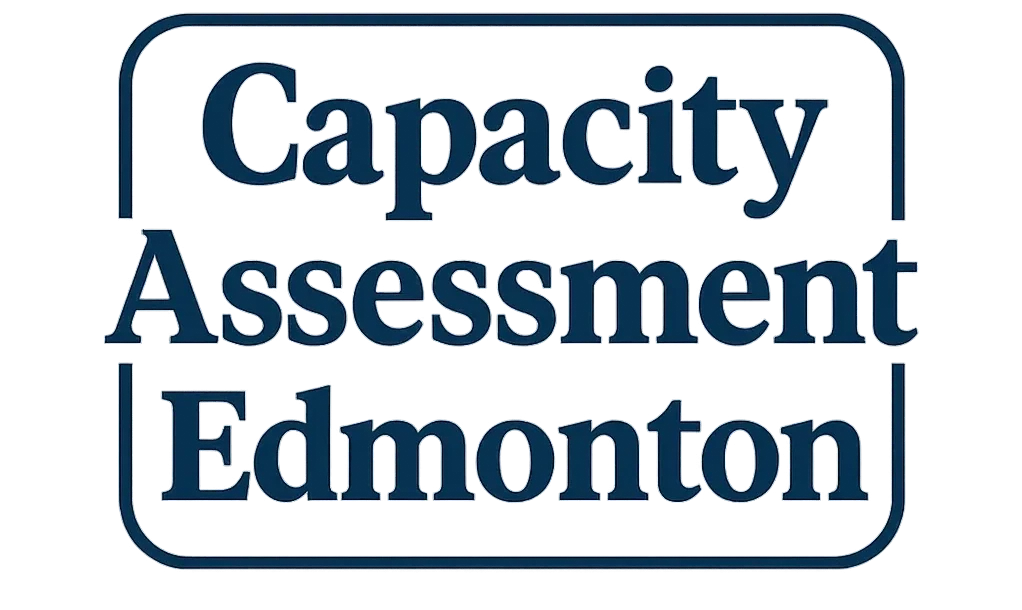Capacity Assessment near me in Edmonton
Capacity assessor near me
July 28, 2025

Decoding Capacity Assessment Near Me in Edmonton: A Personal Journey into Clarity, Care, and Choice

Ever had that moment when a friend drops a question over coffee, and it throws your world sideways? That happened to me last fall. “Do you know where to get a capacity assessment in Edmonton?” she asked, genuine concern etched on her face. It’s not the sort of thing you Google lightly. As I learned (sometimes awkwardly), capacity assessments aren’t just checkboxes—they’re about protecting dignity, future, and choice. Join me as we wade through the tangled, often misunderstood world of capacity assessment in Edmonton—surprisingly full of local resources, tricky decisions, and reassuringly human moments.
That First Coffee Conversation: Why Capacity Assessments Matter More Than You Think
It started with a simple question over coffee. My friend Sarah looked tired, worried. “How do I know if my mom can still make her own decisions?” she asked. Her mother had been struggling since her stroke, and the family was walking on eggshells, unsure how to help without overstepping.
That conversation opened my eyes to something I’d never considered before. When we notice declining independence in our loved ones—whether it’s forgetting to pay bills, making unsafe driving decisions, or struggling with medical choices—we’re often left guessing. The emotional reality hits hard. You want to protect them, but you also want to respect their dignity and autonomy.
This is where Capacity Assessment Edmonton becomes more than just paperwork. It’s about safety and empowerment for everyone involved. Research shows that assessment needs are often triggered by acute changes in health or cognition, exactly like Sarah’s situation with her mother’s stroke.
When Do You Actually Need One?
A capacity assessment near me becomes necessary in several scenarios:
- Applying for guardianship or trusteeship
- Determining ability to understand medical consent
- Assessing financial decision-making capabilities
- Following sudden health changes like dementia diagnosis or injury
The clarity this provides protects not only your loved one but your entire family relationship. Without professional assessment, families often find themselves in disagreement about what’s best. Some members might see decline where others see temporary confusion.
Edmonton’s Legal Framework Makes a Difference
What makes Capacity Assessment Legal Guardianship unique in Edmonton is our provincial legislation. The Adult Guardianship and Trusteeship Act (AGTA) governs the legal process in Alberta, shaping how assessments are conducted and what they can determine. This isn’t a one-size-fits-all approach—the AGTA framework ensures evaluations are tailored to individual circumstances.
“A timely capacity assessment can be the bridge between worry and workable solutions—for everyone involved,” notes Dr. Radhika Sharma.
The assessment process involves registered psychologists or certified professionals who understand both the medical and legal aspects. They evaluate decision-making ability across different areas—personal care, financial management, medical decisions. This comprehensive approach means families get clear answers rather than continued uncertainty.
Looking back, I wish Sarah had known about Adult Guardianship options sooner. The months of family stress could have been avoided with proper assessment and clarity about her mother’s actual capabilities.
Cracking Open the Process: What Actually Happens in a Capacity Assessment?
Before I dove into understanding the Capacity Assessment Process Edmonton, I’ll admit I had some wild misconceptions. I pictured sterile rooms, clipboards, and someone firing rapid-fire questions at vulnerable people. The reality? It’s nothing like that at all.
What I Imagined vs. What Actually Happens
My assumptions were completely off base. I thought it would be this cold, clinical “test” where someone either passes or fails. Instead, research shows that Edmonton assessments involve multiple steps, not a one-size-fits-all check. It’s actually a thoughtful, personalized conversation designed to understand someone’s unique situation.
Meet the Team Leading Your Assessment
The professionals conducting these evaluations aren’t random bureaucrats. You’ll work with registered psychologists or Designated Capacity Assessors (DCAs) – people with specialized training in functional evaluations. These aren’t checkbox-tickers; they’re skilled professionals who understand the nuances of cognitive health.
“We tailor every assessment to the individual—no two are ever quite the same,” explains Dr. Marta Cruz.
The Typical Capacity Assessment Evaluation Flow
Here’s how the Capacity Assessment Process Edmonton actually unfolds:
- Pre-assessment: Initial consultation to understand your specific needs
- Medical review: Examining relevant health information
- Formal interview: The main conversation (more chat than interrogation)
- Capacity Assessment Report (CAR): Written documentation of findings
When you Book Capacity Assessment appointments, you’re stepping into a process that prioritizes comfort and personalization – something local providers take seriously.
Real Conversations, Not Checkbox Quizzes
The interview portion surprised me most. Instead of rigid questions, assessors engage in genuine dialogue. They’re trying to understand how you process information, make decisions, and handle daily tasks. It feels more like talking with a thoughtful professional than taking an exam.
The Kitchen Table Office
One aspect I found oddly comforting: Capacity Assessment In-home options. Sometimes the most accurate assessment happens in familiar surroundings. Your kitchen table might actually be the perfect “office” for this conversation. There’s something reassuring about being evaluated in your own space, surrounded by familiar sounds and sights.
The entire process reflects something important about Edmonton’s approach – personalization and comfort are prioritized by local providers. This isn’t about putting people through a standardized machine; it’s about understanding individual capabilities and needs through careful, respectful evaluation.
How Much Does Peace of Mind Cost? A Quick Reality Check on Pricing and Value
Let me be honest with you – when I first heard about capacity assessment fees in Edmonton, I experienced what I can only describe as sticker shock. The numbers hit differently when you’re already dealing with family stress and uncertainty about a loved one’s wellbeing.
Here’s the reality: capacity assessment pricing Edmonton typically ranges from $500 for guardianship or co-decision making evaluations to $700 for more comprehensive assessments that include both guardianship and trusteeship considerations. If you need an in-home assessment, travel fees may apply – though many families find this convenience worth the additional cost.
What exactly are you paying for? The capacity assessment Edmonton process includes thorough interviews with both the individual and family members, a detailed written report, and consultation time to review findings. You’re not just getting paperwork – you’re receiving expertise from certified professionals who understand the legal frameworks and psychological complexities involved.
“Price is always a talking point, but so is the relief families feel once we complete the process,” notes Sandra Grewal, Capacity Assessor.
I’ve learned that price transparency matters enormously in this field. When you’re ready to book capacity assessment services, reputable providers will clearly outline their fees upfront. Some charge $500 for basic guardianship assessments, while others offer combined services at $700. Research shows that costs are predictable in Edmonton, with clear inclusions that help families understand exactly what they’re investing in.
The value extends far beyond the numbers on your invoice. You’re purchasing legal validity – a document that courts will recognize and accept. You’re gaining actionable insights that can guide critical decisions about care, living arrangements, and financial management. Most importantly, you’re buying peace of mind during one of life’s most challenging transitions.
When I compare providers now, I look beyond just the fee structure. The expertise, the thoroughness of the evaluation, and the quality of ongoing support all factor into the equation. A capacity assessment appointment isn’t just another medical consultation – it’s an investment in clarity and protection for someone you care about.
Yes, the initial cost can feel overwhelming. But families consistently report that the relief and direction they gain far outweigh that first moment of financial surprise. Sometimes the most valuable purchases are the ones that help us navigate uncertainty with confidence.
Who Are the Faces Behind Capacity Assessment Providers? Local Professionals with Heart (and Credentials)
When I first started looking for Capacity Assessment Edmonton services, I expected to find cold, clinical institutions. What I discovered instead was something much more human—professionals who genuinely care about the people they assess.
Edmonton’s roster of Capacity Assessment Providers isn’t made up of faceless institutions. These are real people with specialties in psychology, social work, and occupational therapy. They understand that behind every assessment request is a family trying to make the best decisions for someone they love.
Local Standouts Making a Difference
Several Capacity Assessment Services Edmonton providers have earned recognition for their compassionate approach. Wholesome Psychology brings years of experience in psychological evaluations. Lifemax Occupational Therapy focuses on functional assessments that consider daily living abilities. Disha Counselling & Wellness Centre offers culturally sensitive assessments that respect diverse backgrounds.
What sets these providers apart? They don’t just check boxes—they listen. Research shows that provider choice isn’t just about credentials, but personal fit and communication style. This insight changed how I approached finding the right assessor.
The AGTA Advantage
When choosing a Capacity Assessment Certified Assessor, look for professionals with Adult Guardianship and Trusteeship Act (AGTA) experience. These assessors understand the legal framework and can provide reports that courts actually use.
“Credentials matter, but so does the compassion to see the story behind the assessment,” explains Dr. Jason Ahmed, Psychologist.
This quote captures something I learned personally. During our family’s assessment process, we worked with a provider who took time to understand my father’s history. Not just his medical condition, but his personality, his fears, his dignity. That listening ear made all the difference in how comfortable he felt during the evaluation.
Finding Your Perfect Match
Here’s a personal quirk I discovered: the best Capacity Assessment Edmonton provider for your situation might not be the most famous one. Sometimes it’s the professional who returns your calls promptly or explains complex legal terms in simple language.
If capacity assessment was a musical, the leading character wouldn’t be the paperwork or even the formal interview. It would be that moment when the right assessor connects with your loved one, sees their humanity, and creates a safe space for honest evaluation.
Edmonton’s capacity assessment landscape offers choices. The key is finding someone who combines legal expertise with genuine empathy—because that combination shapes everything that follows.

How to Actually Book a Capacity Assessment Near You (Hint: It’s Easier Than You Fear)
When I first needed to book a capacity assessment appointment, I spent way too much time staring at my computer screen, overthinking everything. The truth? It’s actually straightforward once you know the steps.
Your Digital Path to Booking
Start with a simple Google search for “capacity assessment near me” or “capacity assessment Edmonton.” You’ll find local providers, but here’s my shortcut: head straight to https://capacityassessmentedmonton.com/capacity-assessment-appointment/ for instant online booking. Research shows that local providers have streamlined online booking, making the process much simpler than it used to be.
Most providers offer both digital booking and phone scheduling. I prefer online because I can browse available times without feeling rushed. But phone calls work too—especially if you have specific questions right away.
Questions I Wish I’d Asked Sooner
Before you book capacity assessment services, ask about:
- Cost breakdown and payment options
- Assessment location (office or in-home availability)
- Timeline for receiving results
- Confidentiality policies and who receives reports
These questions help clarify expectations and reduce anxiety about the unknown.
My Grandmother’s Golden Question
Here’s something my grandmother always asks any healthcare provider: “What would you want your own family member to know about this process?” It sounds simple, but providers often share their most honest, helpful insights when you ask this way. It creates connection and gives you peace of mind.
Why That First Step Matters Most
The hardest part isn’t the actual booking—it’s deciding to start. I remember hovering over the “submit” button, second-guessing myself. But as Linda V., a local caregiver, told me:
“Taking the first step feels big, but it opens doors you didn’t know you needed.”
It’s completely normal to feel nervous about starting this process. That nervousness actually shows you care about making the right choice. Capacity Assessment Edmonton providers understand this—they’re used to working with families who feel uncertain.
The booking process typically takes less than ten minutes online. You’ll select your preferred date, provide basic contact information, and often receive confirmation within hours. Some providers even send helpful preparation materials automatically.
Don’t let fear of the unknown keep you from getting the clarity you need. The assessment process exists to provide support and understanding, not judgment.
Capacity Assessment Features and Benefits: Beyond the Paperwork
When I first learned about Capacity Assessment Features, I thought it was just another bureaucratic hurdle. But as I delved deeper into what these evaluations truly offer, I discovered they’re far more meaningful than simple documentation.
Protecting legal rights and autonomy becomes increasingly crucial as we age. The assessment process isn’t about limiting someone’s freedom—it’s about safeguarding their ability to make informed decisions. Research shows that these evaluations provide vital clarity and are recognized under Alberta law, empowering both families and professionals to take appropriate action when needed.
The Capacity Assessment Evaluation Report: Your Legal Foundation
The Capacity Assessment Evaluation Report serves as the practical backbone for guardianship and care decisions. This isn’t just paperwork gathering dust in a filing cabinet. It’s a comprehensive document that captures an individual’s cognitive abilities, decision-making capacity, and specific support needs.
Under Alberta’s Adult Guardianship and Trusteeship Act (AGTA), this report becomes the cornerstone for legal proceedings. When families need to apply for Capacity Assessment Trusteeship or guardianship, this evaluation provides the evidence courts require.
Beyond Documentation: Real-World Benefits
The Capacity Assessment Benefits extend far beyond legal requirements. I’ve seen how these assessments provide:
- Peace of mind for worried family members
- A documented plan that guides future care decisions
- Support for proactive rather than reactive planning
- Clear communication tools for healthcare providers
“The capacity report isn’t just paperwork—it’s a path forward for families in uncertain times,” explains Natalia Jones, Social Worker.
While we live in a digital age, the written report remains irreplaceable. Lawyers, healthcare providers, and family members rely on this tangible document for years to come. It becomes a reference point that outlasts memory lapses and emotional moments.
Opening New Pathways
If I had to describe a capacity assessment as a passport, it would open destinations of clarity and support. For Capacity Assessment Edmonton residents, this evaluation unlocks access to appropriate care services, legal protections, and family understanding.
The assessment enables families to move from uncertainty to action. Instead of wondering “what if,” they have concrete information to guide their decisions. This transformation from reactive worry to proactive planning makes all the difference in challenging times.
Ready to begin this journey toward clarity? You can easily book your appointment and take the first step toward understanding and support.
What I Wish I’d Known: Prep, Points of Confusion, and Resources for the Journey
Looking back at my journey through capacity assessment Edmonton services, I realize I made things harder than necessary. My biggest mistake? Waiting until we were in crisis mode before seeking information. Research shows that better outcomes occur when families access resources in advance, and I wish I’d learned this sooner.
Don’t Wait for a Crisis—Start Early
If I could do it differently, I’d begin exploring capacity assessment resources months before actually needing them. The stress of urgent decisions clouds judgment. When you’re not under pressure, you can properly research providers, understand costs, and ask the right questions.
Common Points of Confusion
The biggest confusion I encountered was understanding the difference between health assessments and legal capacity evaluations. Many people think their family doctor can handle everything, but capacity assessment evaluation requires specialized professionals like registered psychologists or designated capacity assessors.
Privacy concerns also created confusion. I worried about who would see the results and how they’d be used. Understanding scope upfront—whether for financial decisions, personal care, or medical consent—helps clarify the process significantly.
Invaluable Online Resources
Local provider websites offer surprisingly comprehensive guides. Wholesome Psychology provides detailed explanations of their functional capacity services. Lifemax Occupational Therapy offers clear information about their assessment approach, while Disha Counselling explains the legal framework thoroughly.
These online provider hubs are invaluable because they answer questions you didn’t know you had. Each site includes FAQs addressing common concerns about the assessment process, timelines, and what to expect.
The Power of Community Feedback
As occupational therapist Aarti Singh notes,
“The best outcomes happen when families are informed, not just involved.”
Community feedback from other caregivers and seniors proved incredibly valuable. Online support groups and local community centers often share practical insights that official websites don’t cover—like which providers are most patient-friendly or how to prepare someone who’s anxious about the evaluation.
When you’re ready to book capacity assessment services, having this foundation of knowledge makes the entire process smoother. The key is starting your research early, understanding the different types of assessments available, and connecting with others who’ve walked this path before you.
Conclusion: Redefining Capacity Assessment in Edmonton—A Human, Hopeful Step Forward
After walking through this journey together, I’ve come to realize that Capacity Assessment Edmonton isn’t what I initially thought it would be. It’s not a clinical, cold process that strips away dignity. Instead, it’s a proactive investment in clarity and care—something that actually gives power back to families when they need it most.
What strikes me about Edmonton’s approach is how the providers here make an intimidating process feel genuinely approachable and personal. Research shows that human connection and clarity are at the center of Edmonton’s capacity assessment experience, and I’ve seen this firsthand. The registered psychologists and designated capacity assessors don’t just check boxes. They listen. They understand that behind every assessment request is a family trying to do right by someone they love.
I’ll be honest—taking that first step feels clumsy sometimes. You’re not sure if you’re overreacting or if you’ve waited too long. But here’s what I’ve learned: that awkward, uncertain first call to book a Capacity Assessment near me is actually the boldest act of care you can take for yourself or a loved one. It’s choosing clarity over confusion, action over endless worry.
“Clarity isn’t a luxury—it’s a right. Edmonton’s capacity assessment community helps make it accessible for all.”
The beauty of Capacity Assessment Services Edmonton is that you don’t have to navigate this alone. Whether you’re dealing with aging parents, supporting a spouse through cognitive changes, or planning ahead for your own future, Edmonton’s qualified providers offer something invaluable: expertise wrapped in genuine care.
My final piece of advice? Book Capacity Assessment appointments when you have questions, not when you have a crisis. Knowledge and peace of mind come from action, not from waiting for the perfect moment or having all the answers. The assessment process itself often provides the clarity you need to move forward with confidence.
This isn’t just about legal requirements or medical evaluations. It’s about preserving dignity, supporting independence where possible, and creating clear pathways for care when needed. Capacity Assessment Edmonton is ultimately a local journey—one that’s best taken with good company and qualified guides who understand both the legal framework and the human heart behind every assessment.
Take that step. Book your appointment today. Your future self will thank you for the clarity.
TL;DR: Capacity assessment in Edmonton is more approachable than it seems. With the right information, local providers, and clear steps, you can book a thorough, respectful evaluation that supports important life decisions. Start with a trusted provider; your peace of mind is only an appointment away.




